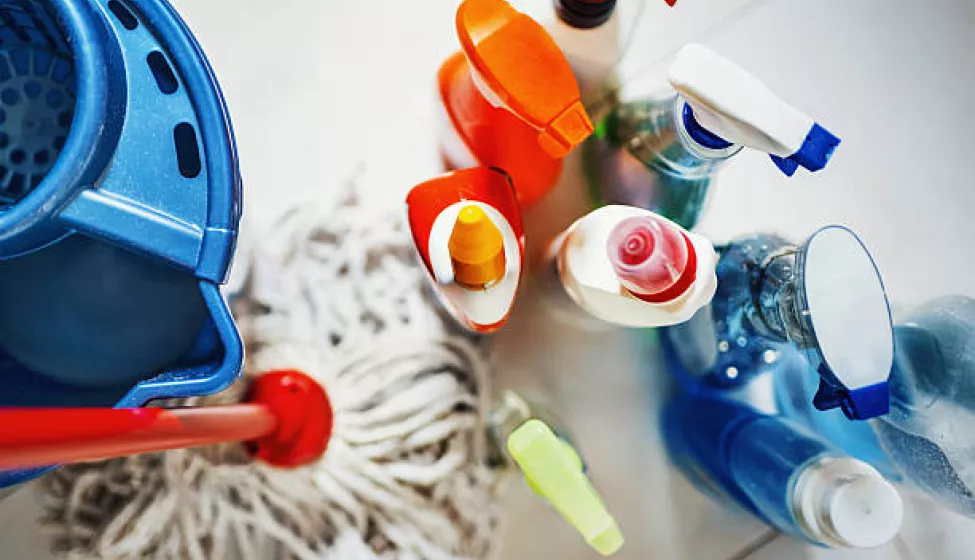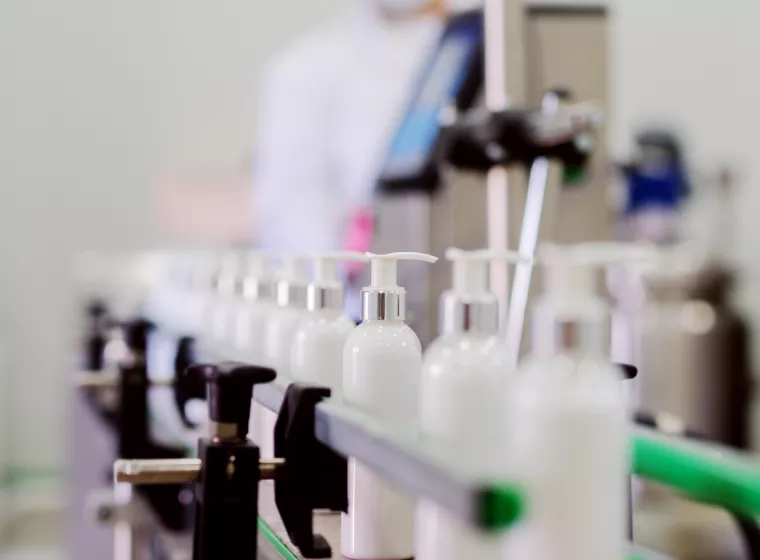September 19, 2023
Household cleaners, air fresheners, floor sealers, auto polish, and more to be prohibited from containing PFAS in state ban with national supply chain implications
Last week California became the first U.S. state poised to ban per- and polyfluoroalkyl substances (PFAS) in household and industrial cleaners.
On Sept. 12, the California Senate voted 31-5 in favor of AB 727, a bill that will ban "intentionally added PFAS" in household and industrial cleaners, floor sealers and finishes, air fresheners, and room sprays, as well as cleaning products intended for automotive and marine use. The bill will also limit the unintentional presence of PFAS to specific thresholds, measured as total organic fluorine.
PFAS are widely known to be used in many of these products to provide characteristics critical to function, including wet-out, film forming, aerosolization, and more. California's definition of PFAS would also include several industry-critical chemistries that would not be considered PFAS under the definition in the Toxic Substances Control Act (TSCA), including, for example, some aerosol propellants. California's ban will require many companies to re-assess and potentially alter their product composition for general sale to ensure continued compliance with this and other states' PFAS regulations.
Having passed both chambers of the California legislature, the bill will now advance to the governor, who is widely expected to sign the bill into law later this fall.
National implications across cleaning product categories
The California ban is expected to impact product formulations throughout the national supply chain due to the size of the state's consumer market. The formulations of these product categories vary widely in composition from aerosols to foggers, waxes to gels, natural to synthetic fibers, and solids to liquids.
The bill covers the following product categories:
- Air care: products that eliminate unpleasant odors or freshen the air
- Automotive: products that clean, disinfect, polish, protect, buff, condition, or are otherwise used to care for or treat the interior or exterior surface of a motor vehicle
- Cleaning: water vessel products (e.g., deck surface cleaner, hull cleaner, products that dissolve marine growth) or any product used for janitorial, domestic, industrial, or institutional cleaning
- General cleaning products: soap, detergent, or any other product that cleans, disinfects, sanitizes, or otherwise treats fabric, dishes, surfaces (including floors, furniture, countertops, showers, baths), and hard surfaces (including stovetops, microwaves, appliances)
Penalties for non-compliant manufacturers are listed as $5,000 for a first violation and no more than $10,000 per day for each subsequent violation. Under the bill, a retailer or distributor would have 30 days from receipt of the notification to cease selling the product alleged to have violated the law's provisions.
Phased-in limits on total organic fluorine starting in 2026
In addition to banning intentionally added PFAS, California's new law will also limit the unintentional presence of any PFAS in a product or ingredient at or above the following thresholds, as measured as total organic fluorine:
- Starting Jan. 1, 2026, 50 parts per million
- Starting Jan. 1, 2027, 25 parts per million
- Starting Jan. 1, 2028, 10 parts per million
Manufacturers and distributors of floor sealers and finishes have until Jan. 1, 2028, to comply with the law at a total organic fluorine threshold of 10 parts per million. This cleaning product category received an extension due to historical challenges in replacing fluorinated chemistries that serve essential functions in floor care formulations, such as wetting and leveling, which allow these products to perform to consumer expectations.
No standardized testing methodology for total organic fluorine
AB 727 expands further on total organic fluorine testing compared to previous regulations, with the specification that analyses must be conducted with "documented quality control procedures and analytical validation." However, there are no industry standard testing methodologies for total organic fluorine in cleaning products or other consumer products.
While many commercial laboratories have independently developed methodologies for measuring total organic fluorine for some consumer products, these vary among laboratories and result in a wide range of detection limits depending on the type of consumer products evaluated. Given the complexity and diversity of the cleaning product formulations included in AB 727, manufacturers are likely to encounter numerous challenges in testing raw materials and finished products.
Part of a growing trend toward state regulation of PFAS
Although regulation at the federal level is proceeding with attention to specific PFAS, California and other states are proposing and enacting regulation more broadly. California just passed a ban on PFAS in menstrual products, and two other existing California laws will prohibit PFAS in cosmetics and ban PFAS in the manufacture, distribution, and sale of new textiles, beginning Jan. 1, 2025.
Across the U.S., several states have passed or are proposing PFAS regulations that vary considerably across chemical thresholds, testing standards, and compliance timelines. Proposed and passed state bills also vary in their requirements from outright bans to disclosure and product labeling requirements.
What Can We Help You Solve?
Exponent closely monitors the continually changing PFAS regulatory landscape to help clients prepare for new PFAS regulations. Our experts have years of experience investigating supply chains for PFAS sources, working with third-party laboratories to test materials and products for specific PFAS and total organic fluorine, and assisting clients in making decisions that suit their product lines and stewardship goals.
Insights











![Efficacy & Biological Assessment Dossiers [CRFS]](/sites/default/files/styles/cards_home_card/public/media/images/GettyImages-1249116913.jpg.webp?itok=leogMNHO)